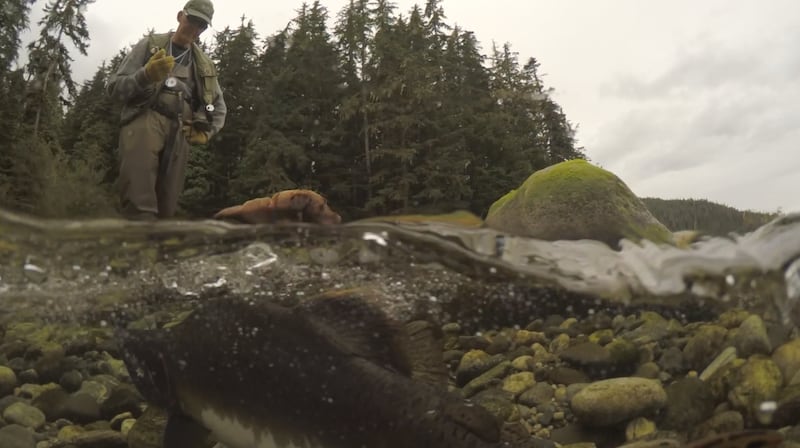A conservation group is sounding the alarm after they say the Department of Fisheries and Oceans failed to renew contracts for fish monitoring at the height of the season.
Creekwalkers have a very particular job of travelling streams in the region and counting fish – creating critical data to estimate stocks and manage fisheries.
But some conservation groups are sounding the alarm – as contracts have been terminated for local creekwalkers, at what is typically height of season in the Skeena and Nass tributaries. Watershed Watch Salmon Society Director Aaron Hill says it’s an essential function for fisheries management;
“Because it allows us to know if we have enough abundance to allow for fisheries to occur. And what’s happened is DFO didn’t get it together this year, for whatever reason, to put proper contracts in place for these folks. And they cobbled together some short term contracts to get them going for the season. And those short term contracts ran out about two weeks ago. And so these folks have been dead in the water. And our salmon streams on the north coast have been going unmonitored for spawners at the height of the spawning season. It’s an absolutely massive management failure by DFO, and it really needs to be addressed immediately to get these folks back on the water, doing their job.”
We reached out to the DFO for an explanation on the terminated contracts. They said that creekwalkers, also referred to as Charter Patrol, complement other departmental and First Nation organizations’ activities.
“A number of Charter Patrol contracts were in place for the Nass and Skeena Rivers in early July for the July / August period, and implementation of longer-term arrangements is underway.
Activities undertaken through Charter Patrol contracts account for less than 5 per cent of overall Pacific salmon monitoring programs in the Nass and Skeena River systems.”

Hill says one contract has now been reinstated as of Monday – and another is in the works.
However he says this is not an ideal solution – there has now been a massive gap in assessments in many areas.
Hill says this highlights the chaotic and dysfunctional approach the DFO is taking, despite a large investment made just last year.
“This failure to keep our creekwalkers in the water is coming right at the end of the Pacific Salmon Strategy Initiative, which is this program where the federal government spent $650 million over the last five years to conserve and restore salmon populations in B.C.. And again, this is the one job that they really need to do the most, is actually getting out there and counting the fish. Which also lets them know if they’ve spent that money effectively and it’s having the desired impact on the stocks.”
Misty MacDuffee, Wild Salmon Program Director at Raincoast Conservation Foundation, warned about the long-term ecological toll:
“Cutting these stock assessment programs in the middle of the season is difficult to justify. If we can’t track the health of salmon populations, we can’t conserve or rebuild them, or go fishing on them. Wild salmon and the people who depend on them expect and require better.”
The DFO said their program is evolving.
“Although general fishery and Pacific salmon monitoring activities will continue through the administration of Charter Patrol contracts for the north and central coasts of B.C. in 2025, DFO is evaluating the delivery of contract fishery monitoring services across British Columbia and Yukon to inform future strategies and approaches.”
Although method and management is in question, both groups seem to agree that Pacific salmon stock assessment and research is an integral part of the conservation and management of Pacific salmon.
